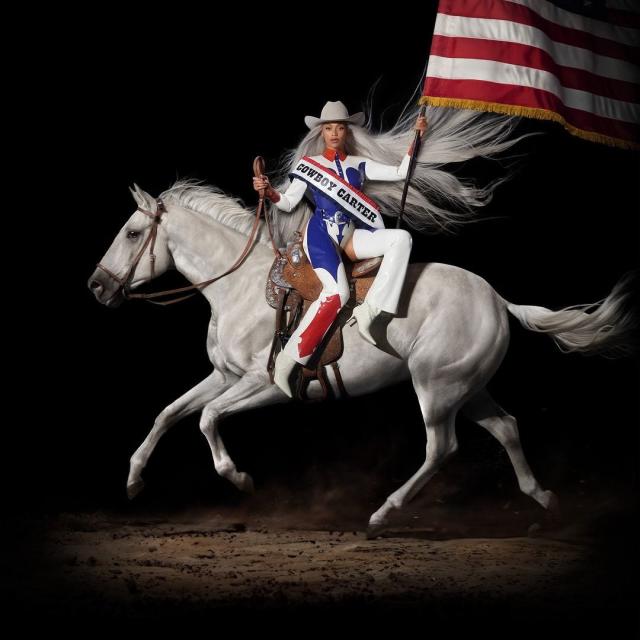My first vivid memory of discovering country music was with my grandmother and discovering that she liked Randy Travis. This was a woman who was devoutly devoted to listening to gospel music, so it was a shock to me. It was also at the beginning of finding music outside of hip-hop and R&B. In those moments, there’s something pure about having something different permeate your senses. It’s because there’s a protective encasement around that sense of wonder that does not apply to gatekeeping — because it’s your journey. From there, you learn about the Garth Brooks, Dolly Partons, the Tammy Wynettes of the world, but also the Charley Prides, the DeFord Baileys, and even how iconic Black singers such as the late Tina Turner and The Pointer Sisters placing their spins on the genre. Like much of the creative DNA throughout time, Black history is always within the mix of personalizing and moving it forward.
As I considered my relationship with the genre, I wondered why I felt uneasiness about relating to it. Much of it is due to discovering some of country music’s ugly sides, like Johnny Rebel’s incessant use of the N-word or, most recently, Jason Aldean’s ‘Try That In A Small Town.’ A sense of patriotism is abundant within country music’s imagery and lyrical content, which only seems obtainable to some and not others. There is a universal language of loving your partner and the ways you want to express that — country music captures those moments with an uncanny photographic memory. There’s a specific snapshot of how the American Dream is supposed to look and feel that doesn’t lend itself malleable for people outside of its circumference to be included within. It’s much like the view of the American flag and the various meanings people can take from it. It’s not that Black people and people of color don’t want to embrace it; it’s just that the ideals it represents have often betrayed their trust time and time again.
This brings me to the 2016 CMA Awards and Beyoncé’s performance of ‘Daddy’s Lessons’ with The Chicks — who also considered a considerable amount of backlash from country fans in 2003 when they spoke out against former President George W. Bush and the Iraq War. The performance was a celebratory exercise of worlds colliding, but the response was anything but. When I say not welcoming, the reactions ranged from “they’d never invite a country singer to the BET Awards” to calling Beyoncé a “racist” because she spoke out about police brutality and injustice. I mean, we’ve had collaborations with Nelly and Tim McGraw before. What do you mean this isn’t country enough? This is someone who was born in Houston, Texas; it’s as southern as it gets. Because she loves her country enough to critique it and doesn’t fit the litmus test of unshaken devotion to a place where she still experiences racism despite all her hard-earned accolades, there’s no room for her. This is why we are on the doorstep of one of Beyonce’s most important projects to date in Act II: Cowboy Carter, a project she states was born on the same night she felt unwelcomed on top of The Academy, saying ‘Daddy’s Lessons’ wasn’t country enough.
One crucial tidbit came from her saying, “This ain’t a country album; this is a Beyoncé album.” That might be more of a shift than the music and clothing, which were born from trying to redefine what Americana is. In the realm of artistic achievement, Beyoncé is undeniably up there with some of the greatest to ever do it. Her crossover appeal is monumental, except when it comes to this final frontier of confronting the close-mindedness of some of country music’s faithful. Singer Maren Morris, who is also from Texas, spoke out about how she was leaving the “toxic parts” of country music behind because of the genre’s inability to reckon with its history. This is eerily similar to the political landscape, where there’s an ongoing movement to sweep America’s history under the rug and not learn from it. As hard as it is for her, think about the abuse leveled at a Black woman who is perceived to be an outsider trying to make music within that space.
One of the Cowboy Carter covered sparked debate and discussion. I completely understand where people are coming from when they see Beyoncé sitting on top of a white horse, holding the American flag, and being jarred by it. It’s because even thinking you could be in a position to hold it and not be fazed by it feels insurmountable given the history of what Black people had to go through. However, Black people have shown their resistance and ability to repurpose things not meant for this into something more inclusive and of culture. This is not to say that I think people will start buying flags by the boatloads when this album comes. The album cover is an extension of not allowing the history of a thing to define what she’s doing; instead, it’s her bending the thing to fit within her definition.
Main Photo Credit: Parkwood Entertainment













